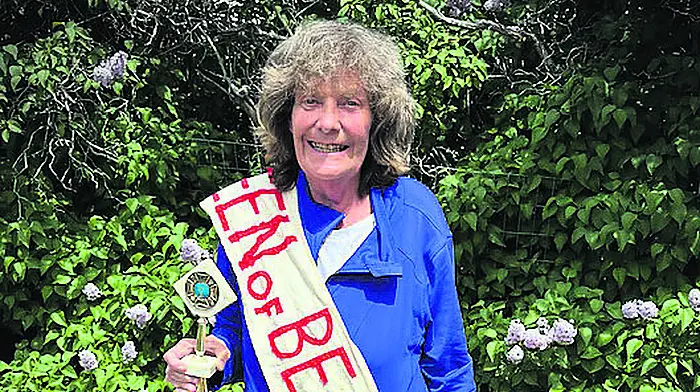Your Mental Health with Linda Hamilton, Cognitive behavioural therapist
Your Mental  Health with Linda Hamilton, Cognitive behavioural therapist
‘A reliable way to make people believe a lie is frequent repetition', says cognitive psychologist Daniel Kahneman, ‘because familiarity is not easily distinguished from truth'.
Marketers and politicians like Donald Trump have long understood Kahneman's disheartening but important message. We like to think our beliefs – about ourselves and others – are objective and fair, but that's often not the case.
Lies, distortions and misconceptions get repeated; as time passes, they become so familiar they get mistaken for long-established truths.
It may sound simplistic to say that merely repeating a message makes us more inclined to believe it. However, psychological research shows people rate statements that have only been repeated once as more believable than statements they have heard for the first time. This is true even if the person making the statements has been repeatedly lying, and it occurs even if people are warned in advance that repeated statements are no more likely to be true than unrepeated statements!
Even if you know a false statement to be untrue, you're more likely to doubt yourself if the falsehood is repeated. In one study, people who correctly answered that the Pacific Ocean is the largest ocean in the world nevertheless would often go on to agree with the statement ‘The Atlantic Ocean is the largest ocean on Earth'. ‘Repetition makes statements easier to process,' the researchers said, and therefore to the ‘false conclusion that they are more truthful'. This occurred ‘even when participants knew better'.
People should also be aware of the ‘saying-is-believing' effect. Imagine your boss asks for your opinion on a subject, and you already know his opinion on the issue. What would you do? Most people will take their boss's opinion into account and tailor and tune their opinion accordingly. It's perfectly rational to play it safe in such cases. What's less rational is that as time passes, we tend to end up believing what we said – even if we were simply telling people what they wanted to hear.
Â
Friends and family
This also occurs in conversations with friends, family and loved ones. When asked for their views on someone or something, people generally look for cues as to what others think and then respond accordingly. ‘We have a fundamental need to experience a shared reality with others', as one study concluded. All too often, this desire for common ground leads people to tell each other what they what to hear. Over time, half-truths get repeated and upheld; familiarity and the saying-is-believing effect mean the constant verbalising of these opinions results in them being accepted as truth, even if the reality is much more complicated.
All of us have motivational biases. Sometimes, these biases are blatant. More often, they operate more subtly, allowing people to employ different but seemingly reasonable standards to come to the conclusion that suits them.
These biases are problematic in two instances. Firstly, interpersonal and familial conflict can arise. One sure way of bonding with others is by sharing gossip and accepting invitations to criticise a third party, and the net result is that unhealthy coalitions and alliances are created. It would be nice to think we reach our opinions objectively, but the reality is a myriad of factors – our biases and motives, our self-image and self-confidence, our happiness or lack of – shape our opinions.
The second instance is when negative opinions and unfair criticisms are directed not at others, but at ourselves. I've noted previously in this column that low self-esteem often resembles a prejudice against the self, with people being quick to spot apparent mistakes that confirm their negative self-image while dismissing evidence that points to their qualities.
The solution? Firstly, always check your motives. Secondly, challenge those familiar thoughts. Thought records are a staple of cognitive behavioural therapy and help you weigh up the evidence dispassionately, looking for evidence that both confirms and disconfirms your thoughts and opinions.
With cognitive behavioural therapy, the goal is not positive thinking, but balanced thinking. Ultimately, life is better when you're truly honest with yourself.
Linda Hamilton is a Kinsale-based cognitive behavioural therapist
Contact her on 086-3300807 or go to www.kinsalecbt.com






